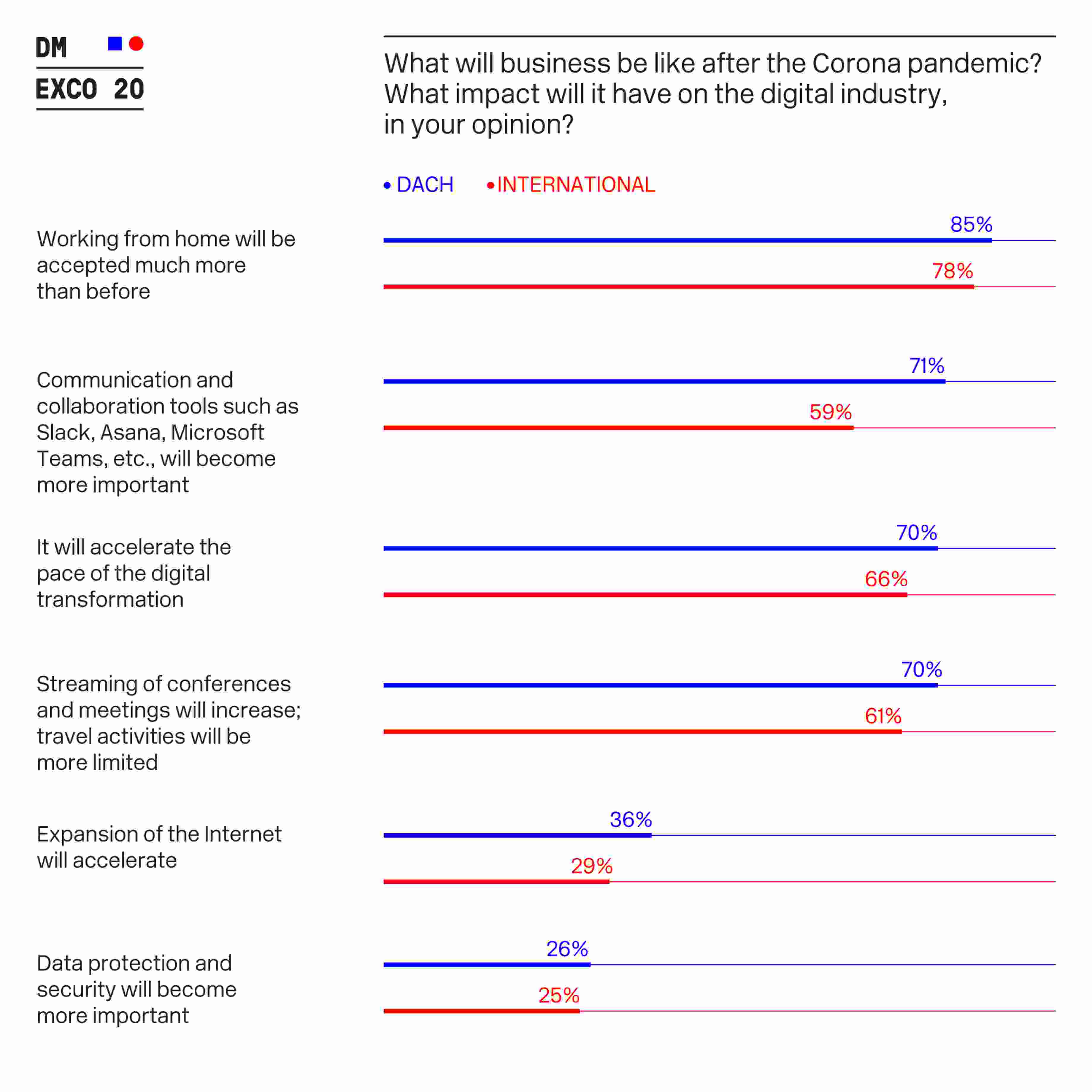Originally published in iGaming Business
“Continuity” was only phase 1. The iGaming industry now faces a new challenge – to maintain strong levels of innovation in a wholly new working world.
In challenging economic times, employers who can motivate teams to solve big problems, rather than just tick over with ‘tactical work’, are surely the ones who will thrive. As was proven in the 2008 financial crisis, treading water is not a long term solution.
“Improvise, adapt and overcome” – the US Marine Corps mantra is more fitting than ever for today’s iGaming leaders. Distanced workforces, remote working, major commercial risks and economic uncertainty… and that was only in the past 3 months! The iGaming industry has already weathered a significant storm.
So, now that the immediate continuity plans have been enacted, the big question iGaming leaders should be asking themselves is:
“How do we inspire our workforce to innovate and solve the big problems in a post COVID-19 world?”
Focusing on the answer to this question will be the key to triumph in these uncertain times.
Digital Essentials = Continuity
The first priority since March 2020 has been ensuring “continuity” wherever possible. Achieving this in itself has taken gargantuan feats of effort and imagination, both within and beyond the iGaming Sector.
Companies whose digital transformation efforts had dragged on for decades have jet-propelled plans into reality in the last few months. In fact, 70% of those organisations surveyed by dmexco in the DACH region “expect the coronavirus pandemic to accelerate the pace of the digital transformation.”
Practically every aspect of business has had to adapt for a post COVID-19 world:

Slack, Teams and Zoom are the new… everything! (500%+ user growth is not uncommon.) Although the iGaming industry was already better digitally prepared than most, iGaming Academy has seen a marked increase in enquiries for our online training services suggesting that companies are actively expanding their digital communication toolset further still.
In the mid-1990’s, “the death of distance” became a much-discussed topic. “The thinking was that new web-based and telecom technologies had made it possible to communicate and work in new ways that dramatically reduced the value of physical proximity.” (Sneader & Singhal, McKinsey.) There was, however, no ‘big bang’ change in business culture and offices stayed full.
As rapid adoption of remote working models has become essential, “these practices could well stick, making for better management and more flexible workforces.” If it’s here to stay then, how do we make it work?
How Do You Keep Remote Teams Innovative?
Two factors raise concerns when considering a long-term ‘remote working’ business future:
First, individuals who’ve recently moved to remote working (as an estimated 16 million ‘knowledge workers’ in the US did this March) may feel less motivated; according to this Slack survey on remote working, “45% of newly remote workers report that their sense of belonging suffers at home”.
Second, whilst ‘tactical’ type work – procedural, repetitive, formulaic – is adaptable to remote working, ‘problem solving’ and ‘innovation’ type work may be more challenging. The Economist’s “90% Economy” cover story notes that “studies suggest the benefits of working from home only materialise if employees can frequently check in at an office in order to solve problems… Anyone who has tried to bounce ideas around on Zoom or Skype knows that spontaneity is hard.”
Innovation is absolutely critical in iGaming. Ours is a fast-paced industry that adapts rapidly to changing market conditions, providing products and services for customers whose expectations are always evolving. The most successful iGaming companies have earned their position by fostering truly exceptional teams of talented professionals and motivating them to achieve high goals.
To look outside of iGaming, during the 2008 financial crisis, for example, Starbucks set up an innovation programme called My Starbucks Idea. In its first year, the initiative gathered over 70,000 ‘innovative’ contributions from staff and customers and led the business to exciting new ventures (and revenue streams.)
A new HBR study has identified three positive motivators – play, purpose and potential – that provide some focus for those wishing to prioritise innovation. All three traits are in jeopardy in today’s working situation:
“Play, the motive that most boosts performance, could decrease if it continues to become harder for people to get things done from home. For example, people may miss the joy of problem-solving with a colleague, or the ease of making a decision when everyone is in one room. Purpose could also decline with teams’ decreasing visibility into their impact on clients or colleagues, especially if no one is there to remind them. Lastly, potential could decline if people can’t gain access to colleagues that teach and develop them.”
Fostering an environment (be it, office-based or digital) where problem solving and innovation can thrive should be one of iGaming leaders’ highest priorities at the current time.
The HBR article offers some excellent action points for managers, including:
- “What you measure is the single strongest signal to your people of what you care about. If you want to show them that you care about their motivation, you can measure it…”
- “Make sure your weekly routines are not focused only on the tactical work… Half of your week should also be focused on adaptive performance… experimentation and problem solving.”
- “Focus on reflection. Showcase and gather input on the experiments of the week. Where did they struggle with their motivation, and where did they thrive?”
The New Wave: Keep Training & Upskilling
According to an April 2020 Gartner survey of CFO’s, 74% of businesses intend to shift some employees to remote work permanently. In part, COVID-19 has simply sped up an already-existing trend that’s been moving in this direction slowly for some time. But businesses are also keenly aware of potential cost reductions. The post COVID-19 working world will undeniably be radically different to the one we left.
iGaming’s road to full recovery is long, but those businesses that adapt will assuredly bounce back. To do so, however, they will need talented individuals both from within and outside the organisation to help them carry this vision forward and will need people with the motivation and the skillsets to solve the challenges that lie ahead.
Creating a sense of belonging, shared purpose and drive will likely be more challenging now. Changes will have to be made to onboarding processes and innovative ideas will be needed to instil a sense of company culture remotely, for example. There will also be fewer opportunities for mid-level staff to receive the training or mentorship needed to progress up the organisation.
Distance learning is undoubtedly a powerful solution in both these cases. Google Trends shows a 3x increase in searches for “eLearning” from January to March 2020, a level that was held throughout April, indicating sustained appetite.
Together with Totally Gaming Academy, we are already providing comprehensive training services for businesses operating online, aimed at every level of professional and available in multiple formats to optimise distance learning.
Innovation has long been heralded as the trait that sets apart high-performing organisations from laggards. Are you ready for the challenge ahead?
—
Rebeka Mizzi is Head of Sales at iGaming Academy, the industry’s leading provider of specialist online training services. rebeka.mizzi@igacademy.com






